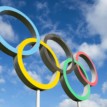

ON September 7, 2013, at the 125th International Olympic Committee, IOC, Session in Buenos Aires, Tokyo won its bid to host the 2020 Olympic Games. The Games were scheduled to commence on July 24, 2020.
Following the outbreak of the COVID-19 pandemic, the IOC, the games organisers and the government of Japan agreed to move the games to 2021. Never had this been seen in peace times. Except for the suspension of the Olympic Games during World War I in 1916 and twice during World War II in 1940 and 1944, the quadrennial games had not been postponed.
Since 2013 when the country won the hosting rights, the government of Japan, in conjunction with the Tokyo Metropolitan Government, has invested between $32 billion and $41 billion, building competition venues and expanding hotel capacity.
A lot too has been sunk into human capital development with a view to delivering to the world a near-perfect, modern Olympic Games, driven by cutting edge technology.
The Tokyo Games were expected to attract around 10,000 athletes and 500,000 international visitors.
ALSO READ: Ultimatum to herders: SANs back Akeredolu, insist action not unconstitutional
As part of the global Olympic Movement, Nigeria’s expectations on Tokyo Games were high, in terms of the performance of its athletes.
With three gold, 10 silver and 12 bronze medals in her entire Olympic history that stretched back to 1952, Nigeria hoped to use the Tokyo Olympics to improve its standing in the all-time medal table.
With a new direction which dwells on areas Nigerian athletes enjoy a healthy comparative advantage, the country entered for eleven sports that include Athletics, Wrestling, Basketball, Canoeing, Rowing, Table Tennis, among others. Due to the prevalence of coronavirus, camping of athletes has been haphazard. Instead, athletes have mostly been training independently.
With the July 23, 2021 date for the commencement of the Tokyo Olympics drawing near, the world is witnessing a resurgence, but by far, a deadlier wave of the COVID-19 pandemic. The new wave has numerous variants. With the increasing number of cases the world over and, in Japan, in particular; the scenario has cast doubts over the possibility of holding the games as rescheduled.
Despite assurances from the Japanese government that the Tokyo Games would go on, public support is waning as thousands are testing positive every day in Japan. Authorities there say it is more severe than was witnessed last year, and that the medical system has reached a breaking limit.
Surely, the situation is grim and calls for expert, discerning and informed contributions with a view to ending this sad chapter in the Olympic Movement. Medical and health technology experts, sports medicine practitioners and all stakeholders should put heads together to save the Olympics.
It is our opinion that the IOC, the host country, Japan, and indeed, the global Olympic family should start bracing up for the worst, and fashion out steps that would ensure the safety of athletes and officials, if the games must go ahead. Alternatively, the Olympic family should not hesitate to suggest another postponement, if need be.
On its part, Nigeria should join the international community in finding a way out of the quagmire. Whatever may be the outcome, the safety of athletes and survival of the Olympic Games must not be compromised.
The post COVID-19 and 2021 Tokyo Olympics appeared first on Vanguard News.
https://ift.tt/3sIAstH by Emmanuel Okogba via Vanguard News Albert Einstein Fools of Fortune
Comments
Post a Comment